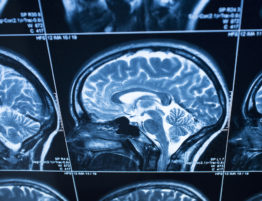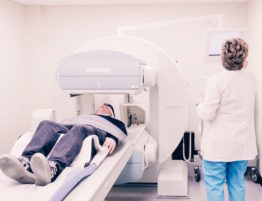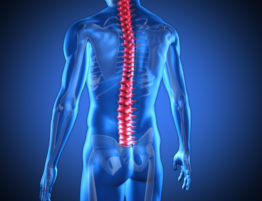Traumatic Brain Injury Accident Lawyers • Los Angeles County Trial Lawyers, Long Beach, CA
Our personal injury trial lawyers represent accident victims who have suffered a traumatic brain injury throughout Southern California, including Long Beach and the Counties of Los Angeles, Santa Barbara, San Bernardino, Ventura, Riverside, Orange County, and San Diego County.
A permanent brain injury may be difficult to recognize or prove. Changes in a person’s behavior or personality may be subtle. In any case, the earlier a brain injury is diagnosed, the earlier a person can begin a treatment program. If you or a loved one has suffered a brain injury, our experienced trial lawyers for accident victims can explain your legal options and how you may be able to obtain compensation from the parties at fault.
If you or a loved one has suffered a brain injury, the lawyers at Stolpmann, Krissman, Elber & Silver, are expert trial lawyers who have experience handling brain injury claims can explain your legal options. Call us today at (562) 435-8300 for a free, no obligation consultation.
Effects of Brain Injuries
The brain is central to thought, movement, emotion and vital bodily functions. Brain injuries may occur through work-related accidents, car accidents, slip and fall accidents, diseases or even from complications at birth. The potentially devastating effects of brain injuries are as widely varied as the injuries that cause them.
The effects of a head injury largely depend on the severity of the accident and the location of the injury within the brain. All head injuries have the potential to be serious. Something as common as a concussion can have serious or long-term effects.
Contact is not necessary to cause a brain injury. A person does not need to hit his or her head or be rendered unconscious to have a brain injury. Brain injuries happen frequently when a person has suffered from a non-contact injury such as whiplash.
In addition, parts of the brain may be injured as a result of medical emergencies such as stroke or heart attack. Stroke and heart attack may affect the brain’s blood and oxygen supply, causing localized or even widespread brain damage. In addition, the brain may be injured as a result of oxygen deprivation caused by near drowning, suffocation or cardiac arrest. It is important to note that traumatic brain injury is different from these types of anoxic brain injury, in which the brain is deprived of oxygen. Traumatic brain injury results in bruising or swelling of the brain; anoxic brain injury results in brain cells dying because of oxygen deprivation.
The following conditions can all be the result of a traumatic brain injury:
Concussion — A concussion is a common result of a non-penetrating blow to the head. It results from the jarring of the brain inside the skull. The common early symptoms of concussion include dizziness, vertigo or loss of equilibrium, nausea, vomiting and headache. A concussion may result in a period of altered consciousness during which a person is dazed or disoriented. Common long-term effects of a head injury involving concussion are:
- Headaches
- Difficulty sleeping
- Lightheadedness
- Poor memory
- Depression
- Ringing in ears
- Poor concentration
- Slowed reaction time
- Intolerance to loud noise
- Mood swings and altered personality
- Difficulty choosing words
Skull Fracture — A skull fracture can be either open or closed, and it generally is the result of a large amount of force applied to the head. Symptoms associated with a skull fracture include bleeding from the middle ear, bruising behind the ear and darkening around the eyes.
Brain Contusion — A contusion or bruise may be found under the site of the impact or on the opposite side from the impact. In addition to bruising, there may be swelling and neurological dysfunction.
Epidural Hematoma — An epidural hematoma is the collection of blood between the dura, which is the skull’s outer shell, and the inner table of the skull.
Subdural Hematoma — A subdural hematoma is caused by a tearing of a bridging vein between a draining venous sinus and the cerebral cortex, and it often results from a whiplash injury. A subdural hematoma will generally look like a crescent-shaped blood collection between the dura and the brain on a CT scan.
Brain Herniation — Brain herniation is caused by increased intracranial pressure. This pressure can cause the patient’s level of consciousness to deteriorate.
Coma — A severe head injury may cause a coma. Coma is defined as the state of unconsciousness from which a patient cannot be awakened or aroused, even by powerful stimulation. A coma sufferer will lack any response to his or her environment. Comas may last only a few days or many years.
Amnesia — Amnesia is generally defined as the loss of memory or as a period of forgetfulness. There are two types of amnesia that may follow a head injury. Anterograde amnesia is defined as the inability to remember events beginning with the onset of the injury. In contrast, retrograde amnesia is defined as the loss of memory regarding events preceding the injury.
Effects of Severe Brain Damage
When a head injury is severe it can dramatically affect a person’s ability to return to a normal life. Depending on the location and severity of the injury, there may be physical and/or behavioral effects. A severe head injury may affect a person’s ability to work, learn, live with his or her family and handle everyday tasks.
The following are possible physical effects of brain injury:
- Difficulty with mobility and coordination
- Difficulty talking and communicating
- Severe headaches
- Difficulty with sensation
The following are possible behavioral effects of brain injury:
- Personality changes
- Depression
- Short attention span
- Learning difficulties
- Memory difficulties
A brain injury can be devastating for both the person injured and his or her family. Therapy, medical treatment and supplies can be exceedingly expensive. A legal claim can help you secure financial assistance from the party responsible for the injury. If you or a loved one has suffered a brain injury, contact the brain injury lawyers from Stolpmann, Krissman, Elber & Silver, LLP, can evaluate your situation and prepare a claim for your medical expenses.





